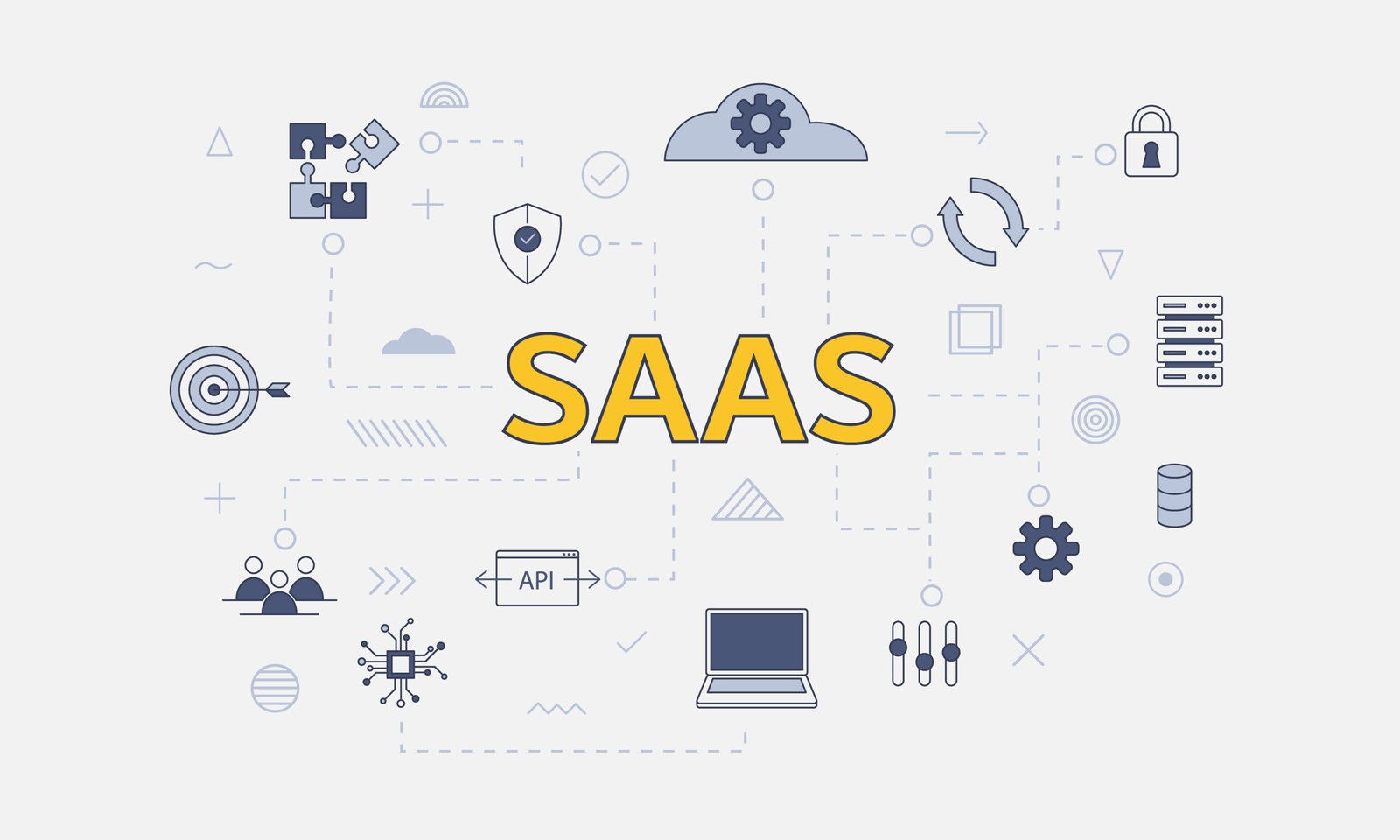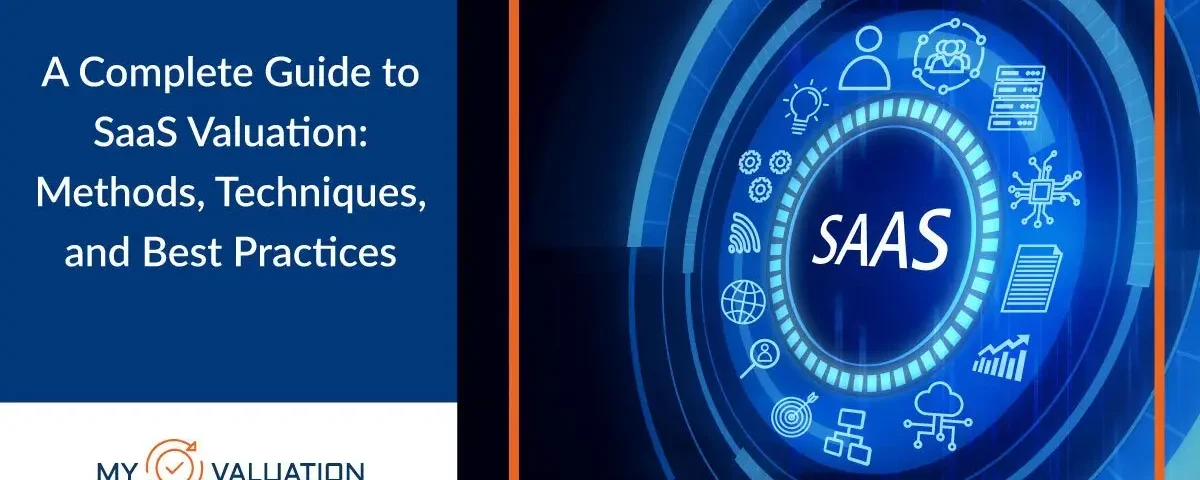A Complete Guide to SaaS Valuation: Methods, Techniques, and Best Practices
What’s your SaaS company’s worth?
This is an important and complex question for any SaaS business owner. SaaS valuations can be complicated; however, understanding the economic value of your company is increasingly important if you want to raise capital or sell a portion of your business.
But just like most complex mathematical problems, SaaS valuation is impacted by a variety of factors such as industry performance, business model, value proposition, stage of growth, and much more.
More than that, there’s not only one single way to define your SaaS company value; rather includes various SaaS valuation methods, metrics, and formulas that altogether help identify a company’s final value.
Luckily, that’s what you’ll learn in this blog. Below we’ll help you understand what is SaaS company, different types of valuation, important metrics, and most importantly, how to value a SaaS company, its formulas, and methods that will help you do the math.
What is Saas?
SaaS means Software as a Service. Becoming the largest and fastest-growing market segment in recent years, many businesses now offer service globally through a web-based application using the SaaS business model.
SaaS company uses software to host an application where customers can access their service remotely without any restrictions.
What is a SaaS Valuation?

SaaS Valuation is a significant concept for business owners, buyers, and investors. SaaS business valuation is where investors and company owners determine the financial value of a company.
The SaaS valuation process helps define the company’s recent and future value based on growth and other factors.
How To Value A SaaS Company?
There are mainly three different types of SaaS valuation used to value a SaaS company by considering the company earnings.

- EBITDA
- SDE
- Revenue multiples
Let’s dig more about each type of SaaS valuation below.
1.EBITDA
EBITDA, when extended means – Earnings Before Interest, Taxes, Depreciation, and Amortization. It is a method of measuring the business profitability in net income.
This valuation method is beneficial for SaaS companies with higher profits. Hence the EBITDA valuation is usually used for companies with earning power above $5 million ARR.
How to calculate a SaaS company’s EBITDA?
There are two formulas that can be used to calculate EBITDA:
- EBITDA = Net Income + Interest + Taxes + Depreciation + Amortization
- EBITDA = Operating Income + Depreciation + Amortization
2.SDE
SDE stands for Seller Discretionary Earnings. It is a financial metric that is used to value SaaS businesses with a single owner or have a value under $5m ARR. This SDE value is basically the remaining value that is counted after the owner has paid all their expenses.
How to calculate a SaaS company’s SDE?
SDE = Revenue – Cost of Goods Sold – Operating Expenses + Owner Compensation
3.Revenue ARR Multiples
This SaaS valuation metric is another great way for figuring out the value of private SaaS businesses. Here ARR stands for Annual Recurring Revenue. These ARR multiples are the ratio between ARR and company valuation.
How to calculate a SaaS company’s ARR multiple?
Multiple = Valuation / ARR
Important Metrics For Saas Company Valuation
What are Saas metrics?
SaaS metrics are used to check and track the performance and growth of businesses. These metrics allow companies to measure their success and make relevant adjustments to strategy if needed.
What are some SaaS metrics that every company should look into?
SaaS companies who want to get a clear idea of their business performance should consider the below SaaS metrics.
Churn
Maintaining existing customers is very important in businesses, and the churn metrics help you measure exactly that.
The customer churn metric calculates the number of subscribers who canceled their service, either monthly or yearly.
The customer churn metric is one of the most important metrics that help businesses understand the customer retention rate.
Formula to calculate the Churn rate
(Canceled Customer/ total no. of customers at the start of the year) * 100
The lower the churn rate, the better the customer satisfaction rate.
CAC & LTV
CAC stands for Customer Acquisition Costs, which shows the amount spent to acquire new customers and how much value they brought to your business.
CAC is calculated by dividing the total number of sales and marketing spend by the new customers during the given time period.
LTV stands for Lifetime Value which is the average amount of money paid by the customer during their engagement with the company.
Both these metrics are important for SaaS companies as they tell you about the profitability of your business.
The formula to find the ratio between CAC and LTV is LTV – CAC.
For example, if your CAC is ₹1000 and LTV is ₹2000, then your business has good growth prospects.
However, if your CAC is ₹500 and LTV is ₹250, then the ratio will be -₹250, which means the business is at this time not profitable. In short, the ratio should be positive.
Recurring Revenue
Recurring revenue means the total number of customers spend on your service on a continuous basis. This metric is also crucial for SaaS business models as these businesses offer software on a subscription basis. Knowing how much customers spend on your business can expect helps businesses predict their growth over time.
There are mainly two types of Recurring Revenue – Monthly Recurring Revenue (MRR) and Annual Recurring Revenue (ARR).
MRR help measures the amount of revenue generated in a given month. And this amount of money, when multiplied by 12, results in the ARR, which shows the amount of money spent by the customer in a given year.
Best Practices To Increase Your SaaS Value
-
- Improve your customer service
- Consistently work to increase customer satisfaction
- Invest in customer education
- Create frictionless and memorable customer experiences
- Recognize your outstanding customers and reward them
To Conclude
It doesn’t matter what negotiation table you are on, SaaS valuation is important for everyone from business owners to investors and buyers.
But to find the true value of a SaaS company, it is crucial to understand every factor related to the process. And to avoid any errors, it’s worth considering the help of a professional valuer to give you the right idea of the company’s worth.
My Valuation is a trusted business valuation firm in Bangalore, India, offering true valuation to Indian SaaS companies. We help you provide the best support and services to handle valuation-related complexities with minimum errors and maximum accuracy.
So are you ready to value your SaaS company?
Contact us today to get started.




